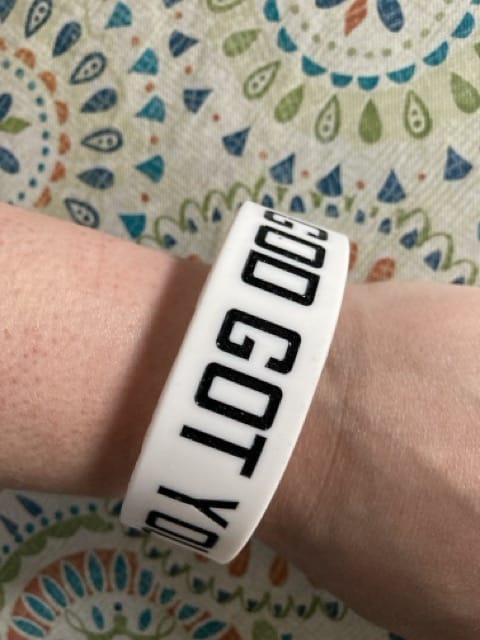There will be no jocularity or linguistic sleight of hand this evening, just a shallow sigh of resignation (since I’m not currently as skilled at deep breaths) as we get this out of the way: the barium swallow study ended prematurely because — surprise, surprise — there was a problem.
No, I didn’t choke in the hacking or coughing sense, and the speech-language pathologist conducting the study noted that what swallows of mine she observed were aspiration-free. That’s cause for celebration, just as what came next is cause for irritation. First, to set the scene, I was sandwiched between pieces of radiology equipment. Standing before me was the pathologist, with a tray of liquids and snacks of varying consistencies and textures. To my side, operating her imaging doodads, was a radiologist (and yes, I mean radiologist as in physician, not a radiology tech).
We started with a sip of liquid, then a sip of medium liquid. A small piece of graham cracker coated with some sort of thickener was chewed for what felt like five hours and sent down the hatch. Since I’d mentioned daily difficulty swallowing pills, I was shown a barium sulphate pill the size of ‘B’ from this lineup and asked if I was willing to give it the old college try. Though I knew it was a bad idea (some of the pills I choke on are, pathetically, much smaller), I meekly reached for it; saying ‘no’ would’ve defeated the purpose of the test.
“Do you need another sip?” the pathologist asked after I forced it down in two swallows. It hadn’t made it past my tongue on the first attempt; on the second it cleared my throat, but just barely.
The radiologist adjusted some of her equipment before I took another sip.
“Could you stand?” one of them asked. More adjustments. Then “Take another sip?”
They exchanged a few words — things like “Yep, that’s it” — and some technical jargon as I complied. The pathologist asked if the pill went down easy or felt stuck.
“It’s right here,” I said, pointing to my chest, not far from my clavicles.
She summoned me from the imaging booth and tilted a screen so I could see it, enlarging the image. Pointing to the (apparently dissolvable) pill, which was lodged in my upper esophagus, she said “It’s stuck right where you feel it.” The liquids I’d swallowed weren’t draining properly, either, though I couldn’t feel that.
The doctor asked if I’ve ever had surgery.
“Yeah, but mostly abdominal,” I answered.
“Nothing esophageal?”
“No.” I paused and gave it some thought. “I have Crohn’s and previous endoscopies showed esophageal inflammation, but nothing serious or current, as far as we know.”
She said I would need to see her for additional testing and that scheduling would call to arrange it. Then she left. The test was over and the pathologist would send notes to my SLP and neurologist. I was given advice on how to carefully eat and take pills in the meantime, much of it mirroring what I was already told at speech and swallow evaluations.
Instantly I felt dejected, certain that ‘Niles’ would take over when I recounted all of this for Crankenstein, who was watching the clock and would request an update soon.* ‘Psst, it’s multiple system atrophy!’ he’d tell her, or ‘She has Lewy bodies in her esophagus!’ Whatever the radiologist comes up with, it’s likelier to involve PD than Crohn’s, but it’s not necessarily a portent of doom. It could be as simple as needing my esophagus stretched, which is a common enough procedure.
None of this deserves any additional thought in the absence of useful details, so I’ll be back later this week with the story of the drag queen who dropped me off at the hospital. Oh, and while rifling through a desk drawer earlier in search of a paperclip, I found the waiting room bracelet mentioned in yesterday’s post.

* She wanted to accompany me but it was a clinic day — a day when she sees patients while teaching medical students, residents and fellows — and I don’t like her missing those for my appointments unless it’s something vitally important.